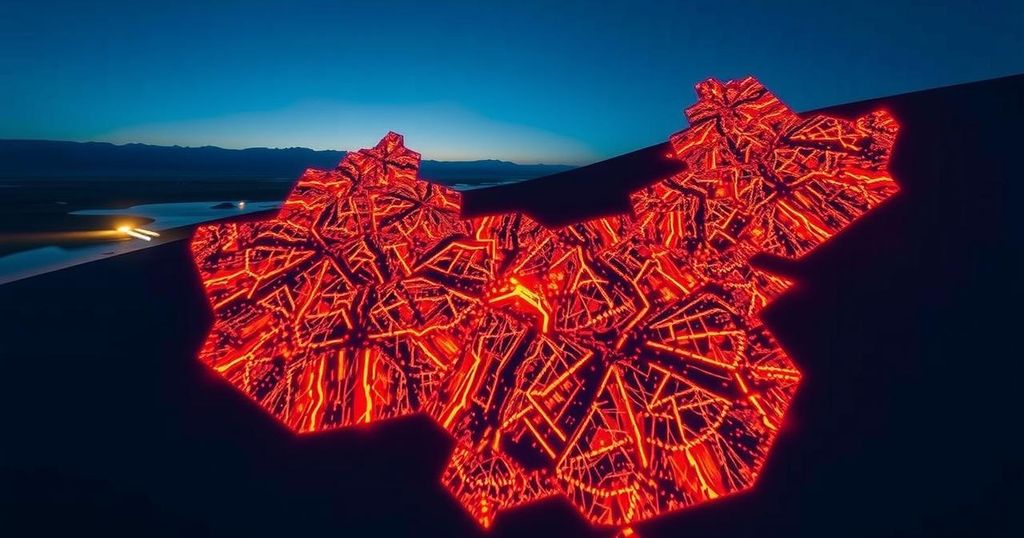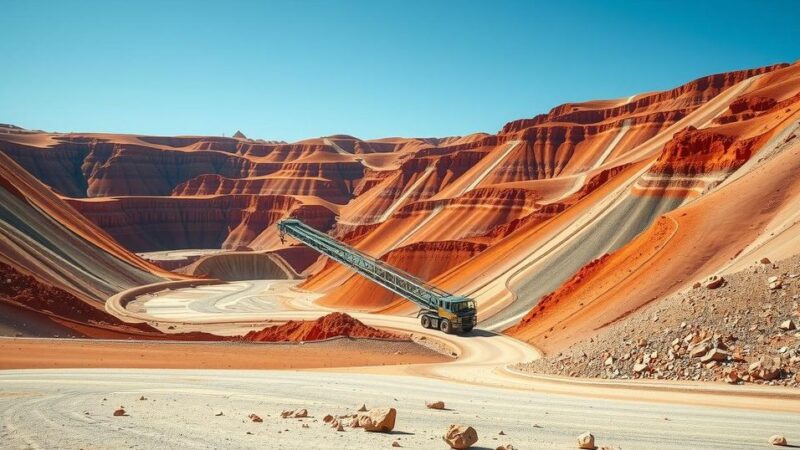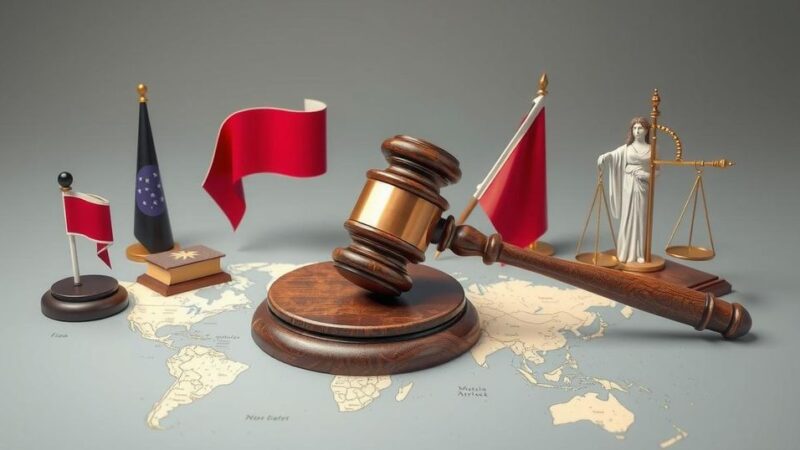Bolivia has signed a $1 billion deal with China’s CBC to build lithium carbonate plants in the Uyuni salt flats. The project aims to produce 35,000 metric tonnes of lithium annually using direct lithium extraction technology while Bolivia maintains a majority stake. However, political challenges predict potential delays in progress, echoing concerns over reliance on foreign investment.
On November 26, Bolivia announced a significant $1 billion agreement with China’s CBC, a subsidiary of the renowned battery manufacturer CATL, aimed at establishing two lithium carbonate production plants within the resource-rich Uyuni salt flats. This strategic initiative seeks to position Bolivia as a formidable player in the global lithium market, leveraging its extensive reserves that have historically remained underutilized.
These newly proposed plants are anticipated to produce a total of 35,000 metric tonnes of lithium annually, utilizing advanced direct lithium extraction (DLE) technology, which is designed to enhance production efficiency while minimizing environmental impacts. Bolivia’s state-owned Yacimientos de Litio Bolivianos (YLB) will hold a 51% stake in the project, thus ensuring national control over this critical resource.
President Luis Arce hailed the agreement as a pivotal milestone in Bolivia’s ambition to become a leader in lithium production, highlighting its potential to substantially influence global lithium pricing. Nevertheless, this aspiration is complicated by existing political and logistical challenges, necessitating parliamentary approval. The fragmented nature of Bolivia’s legislature could pose significant delays, particularly in light of the upcoming electoral cycle slated for 2025.
This recent agreement follows an earlier $976 million partnership with Russia’s Rosatom-owned Uranium One Group, focusing similarly on DLE technology, with a target of producing 14,000 tonnes of lithium per year. Bolivia has previously engaged with both Uranium One and CBC, as well as the Citic Guoan Group, for developing pilot DLE facilities with prospects for scaling to industrial operations. The Bolivian government envisions exporting an annual total of 50,000 tonnes of lithium carbonate equivalent.
However, the reliance on investments from China and Russia introduces potential risks to Bolivia’s economic and geopolitical stability in the long term. While such partnerships promise immediate financial backing and access to advanced technologies, they may simultaneously constrain Bolivia’s autonomy over its resources, risking unfavorable terms that could diminish local benefits and restrict technological transfers. This relationship could undermine Bolivia’s sovereignty in the lithium sector; consequently, Bolivia finds itself in a precarious situation.
Despite housing the world’s largest lithium reserves, estimated at 23 million tonnes, Bolivia has been unable to match the production levels of neighboring countries like Chile and Argentina. Various challenges, including inadequate infrastructure, regulatory obstacles, and political instability, have inhibited substantial progress and led to investor hesitancy. Since the 1990s, the Bolivian lithium industry has been ensnared in bureaucratic complexities and logistical hindrances. Prospective companies will need to navigate intricate environmental regulations and secure legislative approvals, a feat complicated by the country’s political fragmentation and the impending 2025 elections.
Bolivia is recognized for possessing the largest known lithium reserves in the world, yet the country has historically struggled to exploit these resources effectively. Contrasting sharply with Chile and Argentina, Bolivia’s lithium production efforts have been hindered by various internal factors, including poor infrastructure and systemic political challenges. This situation has generated skepticism among global investors, who remain cautious due to the country’s regulatory environment and governmental inefficiencies. The recent agreements with foreign firms, particularly Chinese and Russian entities, are crucial for providing the technological and financial support required for Bolivia to enhance its standing in the burgeoning lithium market.
The $1 billion partnership between Bolivia and China’s CBC marks a pivotal step toward advancing the country’s ambitions in lithium production. However, this deal highlights a tension between immediate economic benefits and long-term sovereignty concerns. As Bolivia navigates the complexities of political approval and foreign reliance, the sustainability of its lithium ambitions remains in question. Ultimately, addressing domestic challenges will be essential for Bolivia to realize its potential in the global lithium market while ensuring favorable terms for its development.
Original Source: www.intellinews.com







